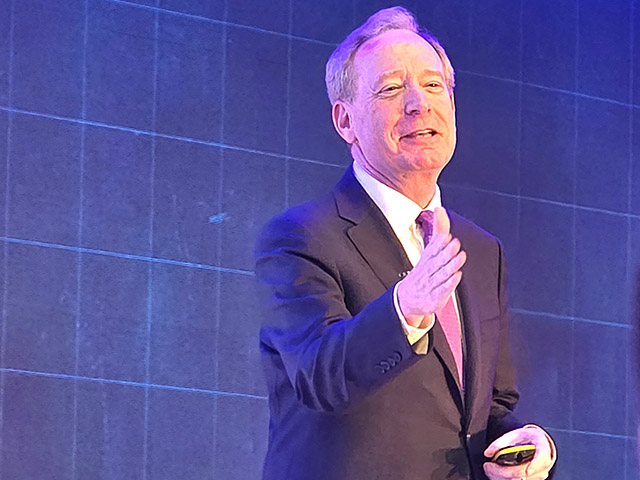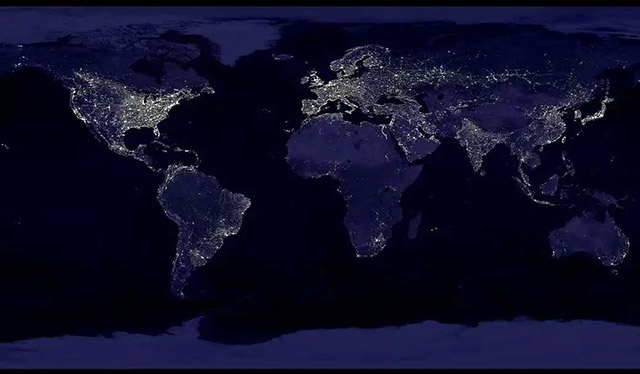Microsoft invests additional R5.4 billion in South Africa
By Ryan Noik 7 March 2025 | Categories: news
Thursday evening this week was unexpectedly jubilant with hope and optimism at Microsoft offices in Bryanston as the company announced its plans to invest another R5.4 billion rand into the country over the next three years.
The investment will see Microsoft expanding its cloud and AI infrastructure in South Africa to meet the growing demand for Azure services in the region.
This investment is over and above the company’s R20.4 billion that Microsoft has poured into the country over the past three years to establish its enterprise-grade datacentres in Johannesburg and Cape Town.
Lillian Barnard, the president of Microsoft Africa, explained that this round of investment will enable a wide range of organisations, from start-ups to large multinationals and government entities, to access the cloud and AI solutions to improve operational efficiency and productivity, optimise the delivery of services, and drive innovation across the South African economy.
Heartening vote of confidence
“Beyond blazing a trail in the local technology space, the longstanding presence of Microsoft in South Africa is a vote of confidence in our country and in our economy. The strategic investment announcements made by Microsoft today stands as further testimony to this enduring confidence. They signal to the business and investor community that South Africa’s economy continues to hold immense potential and that it is a favourable place to do business where their investments are secure,” commented President Ramaphosa.
“For more than 30 years, Microsoft has been a committed partner to South Africa,” said Smith. “This latest investment is part of our broader focus in helping South Africans build a future where technology drives prosperity and young workers have the skills they need to thrive,” he added.
Digging deeper
A massive influx of capital and a vote of confidence in South Africa’s future would be enough to be jubilant about this week’s development. But there is also more to the story.
Microsoft enthused that by providing access to world-class digital infrastructure, coupled with enhancing the capabilities for the South African workforce, helps contribute to a future where AI is seamlessly integrated into every aspect of society, driving growth and innovation.
In a complex and fascinating presentation, Brad Smith, Vice Chair and President of Microsoft, likened AI to electricity, explaining that electricity had spurred an entire economy in the previous century.
The need for fuel, power generation, electrical grids, transformers and circuit breakers, and the development of appliances that ran on electricity enabled a slew of jobs and opportunities such as mechanical engineers, electricians, and reaching far beyond that.
In a similar manner, he explained why AI portends not just a technological advancement but a vast, new economy based on AI-aligned jobs as well.

Brad Smith
Strengthening digital and AI skills
In his presentation, Smith noted that there were for components of succeeding amid the AI revolution – technology (which entails applications, platforms and infrastructure such as data centres), economics (viable business plans), social acceptance and skilling.
Despite the fact that South Africa has one of the youngest populations, and thus is poised to embrace a digital and AI future, unemployment remains rife and imparting usable skills is still a challenge.
According to the World Economic Forum, a majority (60%) of companies in the Global South identify a critical skills gap as a key barrier to business digitally transforming by 2030. Addressing this gap is essential for fostering economic growth and innovation.
To address this skills gulf, earlier this year Microsoft committed to skilling one million South Africans by 2026, equipping companies, government and youth with the knowledge and tools to create AI solutions to address local challenges with homegrown solutions, while contributing to the nation’s AI workforce and ecosystem.
Last night, the company announced that in order to help job seekers validate their technology proficiency to employers, Microsoft will expand its digital skills initiative over the next 12 months by paying for 50,000 people to be “Microsoft Certified” in high-demand skills like AI, Data Science, Cybersecurity Analysis and Cloud Solution Architecture.
The company stressed that by combining skills training with recognised certifications, Microsoft aims to create a future-ready workforce for South Africa and beyond.

AI for Africa
Both President Ramaphosa and Smith pointed to a map that shows the stark differences in broad electrification around the world, with developed countries showing the predominance of active electricity at night, while Africa remained largely dark.
Both stressed that this tragic inequality of electrification, which took place at the end of the last century, must not be repeated with AI, with Smith noting that the wide diffusion of technology across a country and continent makes a world of difference to the region’s economy down the line.
Therefore, Africa must be become a producer of AI technology, not just a consumer.
This means that there must be the development of robust technology infrastructure and the cultivation of digital skills.
Microsoft went even further, asserting that South Africa has an opportunity to lead the way in enabling Africa to become a producer of AI technology. For this to happen, according to a recent United Nations report, urgent infrastructure investments and regulatory frameworks are vital – specifically, investments in connectivity and AI governance frameworks.
The company noted that by investing in cutting-edge infrastructure and fostering a skilled workforce, South Africa and Africa can unlock new opportunities for innovation, enterprise development, economic growth, and competitive advantage on the global stage.
The President achnowledged the importance of infrastructure, regulatory frameworks, and the role of SARS in digital transformation. He further emphasized the need for a capable state and the implementation of a digital identity system to transform the relationship between citizens and government.
Advancing AI responsibly and sustainably
As groundbreaking as AI is, it cannot be done in a way that causes harm, neither to people nor to the environment. Thus, Microsoft stressed its focus on responsible AI and explained that AI infrastructure operating in South Africa will be governed by Microsoft’s AI Access Principles.
These, the company explained, reflect Microsoft’s expanding role as a leader in AI and its commitment to creating programmes that ensure broad access to its AI technology that enable organisations and individuals to develop and use AI in ways that will serve the public good.
The highest praise for the company came from the president - accompanied by the most ebullient applause - as he gave credit where credit is due, and commended Microsoft for ''being an American company with an African heart.''
Amid all else that has happened this week, the vote of confidence, and the hope instilled by the promise of continued investment into the country's future, is, as Mastercard would say, ''priceless.''
Most Read Articles

Have Your Say
What new tech or developments are you most anticipating this year?



